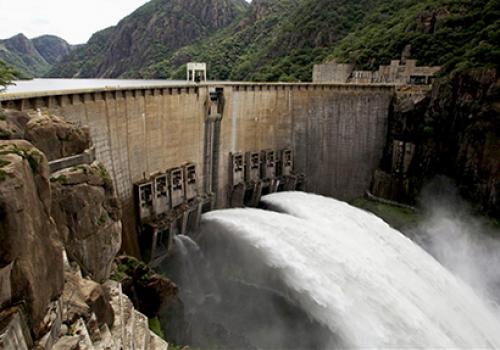There is a need for joint assessments between and among Southern African Development Community (SADC) Member States to pool resources together and make use of the Project Preparation Development Facility (PPDF) to develop bankable investment ready water sector projects while capacity is being developed.
The PPDF is a European Union-funded programme which supports SADC Member States to undertake feasibility, technical and engineering designs, environmental and social impact assessment studies, as well as preparation of tender documents and transaction advisory services to make projects bankable for financing and implementation.
The call to make use of the PPDF came out of the 9th SADC River Basin Organisations/Shared Watercourse Institutions (RBOs/SWIs) Workshop convened on 22-23 September 2021 by SADC in collaboration with the Zambezi Watercourse Commission (ZAMCOM), and with technical support from the Global Water Partnership Southern Africa (GWPSA).
The workshop was held under the theme “Promoting Inclusive and Collaborative Transboundary Water Financing for Sustainable Industrial Development”.
The workshop was aimed at promoting sustainable industrial development in SADC by fully realising the benefits of cooperation across shared waters. It provided a platform for stakeholders from water and related sectors to share information and experiences on inclusive transboundary water financing and collaborative development in line with the theme.
Participants concurred that ground water is a low hanging fruit and that it should be prioritised as it is less polluted and does not need extensive equipment for treatment, and that water is critical factor to support the SADC regional integration and industrialisation.
Dr Patrice Kabeya, the Senior Programme Officer, at the SADC Secretariat, said water is and will remain a catalyst for sustainable development and that it is important to sustain river basins through financing so that they bring the benefits that the Member States intended. He said collaboration is very important in transboundary water management and that one of the key benefits of RBOs is their power to convene.
Participants agreed that national and regional priorities in transboundary water management should be aligned to attract financial investments and that there is a need to develop bankable projects in line with funding partner priorities.
It was noted that Member States contributions are critical in sustaining the functions of the RBOs/SWI and shows commitment and ownership to attract investment, and that inclusion of private sector skills and expertise in RBO/SWI operations is crucial.
Member States were encouraged to embrace opportunities offered by new technologies such as Internet of Things, big data analysis and early warning systems.
Workshop participants also heard that there is a need for joint fundraising to avoid duplication and competition and that there is a need for collaboration not only at RBO level but at the national institutional or sector level.
Regional and basin level interventions are strategic and add value to ongoing member states initiatives. River Based Organisations offer a platform and enabling environment for countries to come together and encourage collaboration and co-operation.
Member States were urged to consider broadening the mandate of RBOs from advisory knowledge gathering roles to execution of strategic investments. They also needed to consider giving RBOs executive powers to make decisions.
Participants also agreed that there is a need to encourage joint assessment among countries and to implement joint programmes that attract investment in the water sector.
Inclusion of women, the youth and people with disabilities into the water sector and climate interventions is also key for the development of the Region.
The workshop was intended to support the efforts of SADC Member States towards the establishment, institutional development, and strengthening of RBOs/SWIs, as well as other transboundary water resources development and management mechanisms in the Region. The RBOs and SWIs shared various experiences and lessons on the theme.
The SADC RBOs/SWIs Workshop is a biennial event which is organised with the aim of engaging RBOs as a vehicle for strengthening regional integration and cooperation.
This year’s event brought together representatives of RBOs, SADC Member States, regional institutions, international funders such as the African Development Bank, development finance institutions, private financiers, and other key SADC sectors (energy, food security, trade among others).
The funding support for the workshop was provided by the United States Agency for International Development (USAID) Resilient Waters Programme, and the GIZ Transboundary Water Management in the SADC region (TWM) Programme.
Among the speakers were Mr Hastings Chikoko, the Regional Director for Africa at C40 Cities Climate Leadership Group; Mr Phera Ramoeli, the Executive Secretary of the Okavango River Basin Commission (OKACOM); Mr Lenka Thamae, the Executive Secretary of the Orange-Senqu River Commission (ORASECOM); Mr Silvanus Uunona, programme manager of the Cuvelai Watercourse Commission (CUVECOM); Sergio Sitoe, the Executive Secretary of the Limpopo Watercourse Commission (LIMCOM) and Ms Leonissah Munjoma, the Acting Executive Secretary of the Zambezi Watercourse Commission (ZAMCOM), which hosted the workshop.
ZAMCOM is a major river basin organisation in Africa. It was established in 2014 as an inter-governmental organisation that brings together eight riparian states that share the Zambezi River Basin namely; Angola, Botswana, Malawi, Mozambique, Namibia, United Republic of Tanzania, Zambia and Zimbabwe.
OKACOM is the Permanent Okavango River Basin Water Commission established through the OKACOM Agreement signed on 15 September 1994 between the governments of Angola, Botswana and Namibia. The OKACOM Agreement (1994) commits the Member States to promote coordinated and environmentally sustainable regional water resources management of the Cubango-Okavango River Basin which is situated across those three states.
CUVECOM is the institution responsible for managing the water resources of the Cuvelai River basin, a transboundary resource shared by Angola and Namibia, while ORASECOM is the institution responsible managing the resources of the Orange-Senqu River basin, a transboundary resource shared by Botswana, Namibia, Lesotho and South Africa. LIMCOM coordinates shared international water issues among four riparian states – Botswana, Mozambique, South Africa and Zimbabwe.

